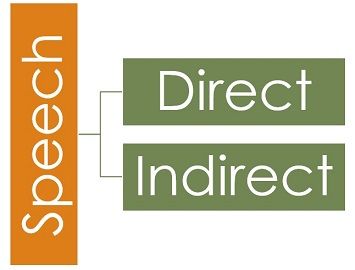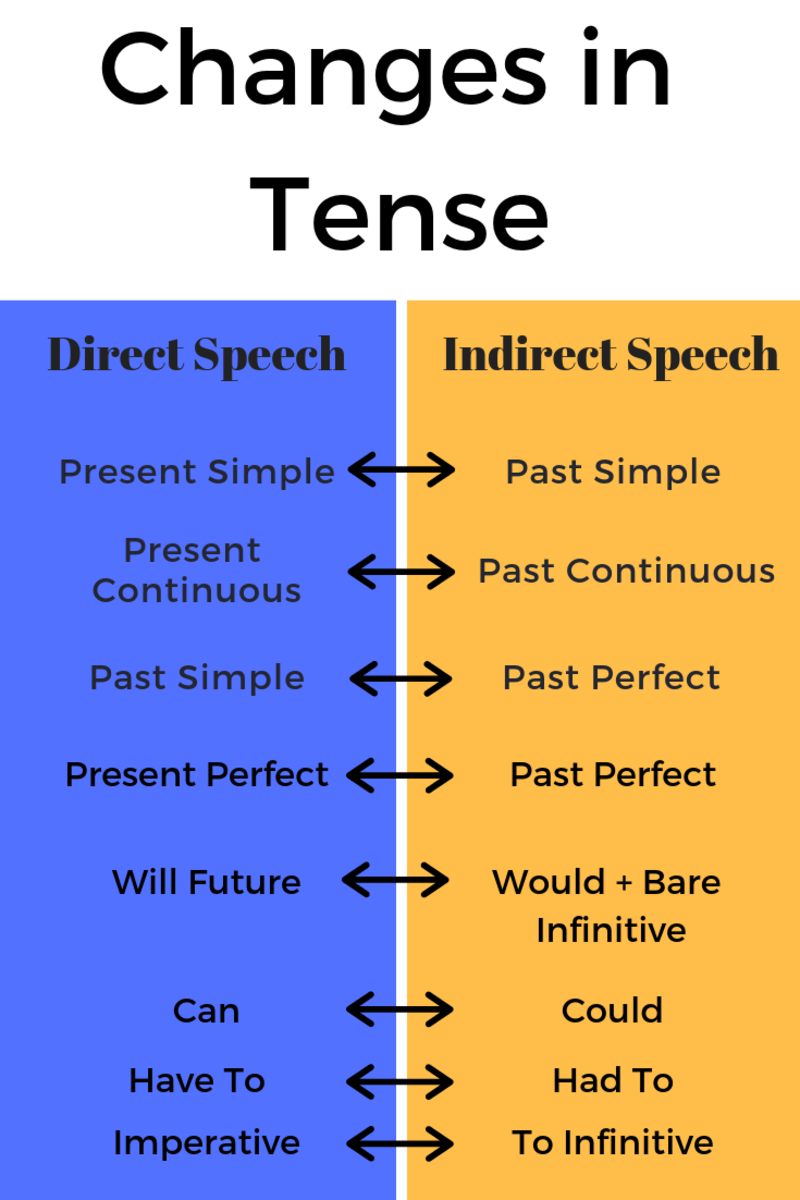
What is Direct & Indirect Speech?
Direct speech – reporting the message of the speaker in exact words as spoken by him.
Direct speech example: Rama said „he is busy now‟.
Indirect speech: reporting the message of the speaker in our own words
Indirect speech example: Rama said that he was very busy then.

Grammar explanation
Reported speech is when we tell someone what another person said. To do this, we can use direct speech or indirect speech.
direct speech: ‘I work in a bank,’ said Daniel.
indirect speech: Daniel said that he worked in a bank.
In indirect speech, we often use a tense which is ‘further back’ in the past (e.g. worked) than the tense originally used (e.g. work). This is called ‘backshift’. We also may need to change other words that were used, for example pronouns.
Present simple, present continuous and present perfect
When we backshift, present simple changes to past simple, present continuous changes to past continuous and present perfect changes to past perfect.
‘I travel a lot in my job.’
- Jamila said that she travelled a lot in her job.
‘The baby’s sleeping!’
- He told me the baby was sleeping.
‘I’ve hurt my leg.’
- She said she’d hurt her leg.
Past simple and past continuous
When we backshift, past simple usually changes to past perfect simple, and past continuous usually changes to past perfect continuous.
‘We lived in China for five years.’
- She told me they’d lived in China for five years.
‘It was raining all day.’
- He told me it had been raining all day.
Past perfect
The past perfect doesn’t change.
‘I’d tried everything without success, but this new medicine is great.’
- He said he’d tried everything without success, but the new medicine was great.
Pronouns, demonstratives and adverbs of time and place
Pronouns also usually change in indirect speech.
‘I enjoy working in my garden,’ said Bob.
- Bob said that he enjoyed working in his garden.
‘We played tennis for our school,’ said Alina.
- Alina told me they’d played tennis for their school.
However, if you are the person or one of the people who spoke, then the pronouns don’t change.
‘I’m working on my thesis,’ I said.
- I told her that I was working on my thesis.
‘We want our jobs back!’ we said.
- We said that we wanted our jobs back.
We also change demonstratives and adverbs of time and place if they are no longer accurate.
‘This is my house.’
- He said this was his house. [You are currently in front of the house.]
- He said that was his house. [You are not currently in front of the house.]
‘We like it here.’
- She told me they like it here. [You are currently in the place they like.]
- She told me they like it there. [You are not in the place they like.]
‘I’m planning to do it today.’
- She told me she’s planning to do it today. [It is currently still the same day.]
- She told me she was planning to do it that day. [It is not the same day any more.]
In the same way, these changes to those, now changes to then, yesterday changes to the day before, tomorrow changes to the next/following day and ago changes to before.
